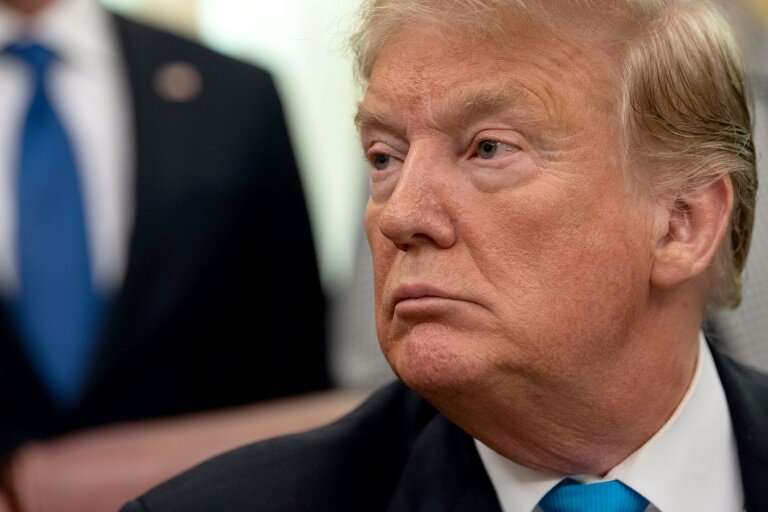Trump's Space Force collides with skeptical Congress

The Space Force that President Donald Trump wants to launch ran headlong on Thursday into skeptical lawmakers who questioned the need for a stand-alone military wing.
Trump has insisted that a separate branch of military is needed to focus on protecting satellites, tackling vulnerabilities in space, and asserting US dominance in orbit.
Under a Pentagon proposal, the Space Force would be established as its own branch of the military but would fall under the Air Force, similar to how the Navy oversees the Marine Corps.
"Both China and Russia have weaponized space with the intent to hold American capabilities at risk," Acting Defense Secretary Patrick Shanahan told the Senate Armed Services Committee, whose endorsement he sought for the new force.
Not since the Air Force was stood up in 1947 has the Pentagon created a new military branch. A Space Force would join the Army, Navy and Marines as well as the Air Force.
"The bottom line is the next major conflict may be won or lost in space," Shanahan told the committee.
But lawmakers were less than clear on why setting up the force solely for space-related matters made sense.
"I don't understand how putting a new box in an organizational chart is going to help us to respond to the new challenge that we face. I'm genuinely undecided, although as you can tell, I'm skeptical," said independent Maine Senator Angus King.
Republican Tom Cotton of Arkansas wondered about the need for a new military service, as opposed to placing space matters in an existing one.
"Can you explain why we need to put all space assets, space forces into a separate service as opposed to a combatant command?" he asked.
The Chairman of the Joint Chiefs of Staff, General Joseph Dunford, recalled that a space force was first suggested two years ago and then dismissed.
At that time, Dunford said, he had his doubts but is now convinced about the need for a separate force.
General John Hyten, who heads US Strategic Command, said creation of a Space Force is inevitable because "every physical domain we have when it becomes contested, we create a military service to deal with that."
What the committee must decide, he said, "is when is that going to happen."
The Space Force would comprise about 20,000 personnel, grouping all Pentagon military and civilians dealing with satellites, rockets, weapons and technology related to space.
"This doesn't make any sense to me. I'm sorry," said West Virginia Democrat Joe Manchin, who considered the Air Force's current handling of space matters satisfactory.
Democrat Elizabeth Warren, a presidential hopeful from Massachusetts, said that "all I see is how a new... force will create one more organization to ask Congress for money.
"And there is no reason to believe that adding an entirely new Space Force bureaucracy and pouring buckets more money into it is going to reduce our overall vulnerability in space."
© 2019 AFP


















